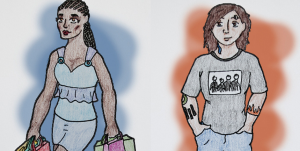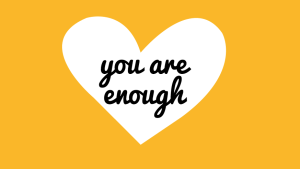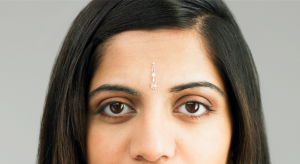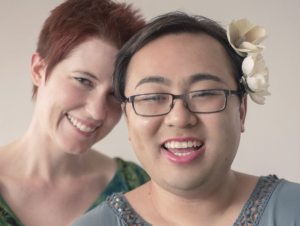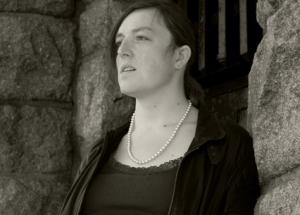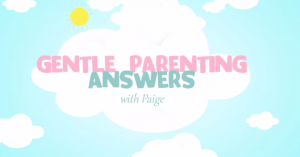You’ve started reading this article for one of two reasons:
Either 1) you’re looking for information on how to support an LGBTQIA+ friend who has begun experiencing family rejection after coming out, or 2) you’re trans, or another identity under the umbrella, and are experiencing family rejection.
To those of you in the second group, know that my heart is with you, totally and completely.
Being ostracized by your family to any degree, even if you didn’t even like them that much, is a challenging experience. So challenging, in fact, it’s recognized by mental health professionals as traumatic and as often leading to PTSD.
I say this not to scare or pathologize you in any way, but to insist that the pain and stress you’ve been feeling after being rejected by your parents is legitimately difficult to live with. You’re not weak; you’re not flawed; this is truly challenging.
Unfortunately, I’m not a therapist or psychiatrist, so I can’t help explain to you how to cope with feelings and situations like this. What I can offer, however, is my own lived experience and some perspective that will hopefully give a sense of grounding and community to those who need it.
I’ll be speaking mostly on account of transgender experiences here, but much of this can be used by other Queer folx as well.
Beginning to Cope with Family Rejection
The healing process after being disowned from your family, like any healing process, will go on for much longer than you want it to.
But please trust that even if the situation feels totally insurmountable today, it will almost certainly begin to feel very manageable and in control as time goes by.
When it feels particularly dark, remember try to put things into a bigger perspective: There is always a shred of hope on the horizon.
You’re still alive and life is still livable.
This situation is rotten, yes, but your right to live and exist exactly as you want to has yet to be stripped of you. You are absolutely capable of handling this. You have the power in you to keep surviving and to keep living.
Your worth as a person is still exactly the same.
Being disowned from your family doesn’t make you any less useful, less enjoyable, or less deserving than before.
Your humanity is still intact, despite your changed situation, and it deserves to be treated by others (and yourself!) with the utmost care.
There are people out there who are dying to know and love you.
Being disowned by your family is not a reflection on you and, to some degree, isn’t even a reflection on the goodness of your family. Instead, it’s a reflection of the culture that we happen to exist in.
And like with many cultures, a strong counter-culture exists here that is populated with individuals who will treat you as you want to be treated and love you as you deserve to be loved.
It’s okay to practice loving yourself unabashedly and without shame.
If you do the math, one or two of the people who were supposed to love you no matter what unexpectedly quit their job, which means that you get to pick up the slack and love yourself two to three times as much as you did before!
Many people who are recovering from some sort of trauma will feel guilty or undeserving of loving themselves. But it’s not you who doesn’t want to love yourself, it’s the trauma that lies and says you don’t deserve it.
Fuck the trauma.
Take time in your week to fly in the face of what you feel like you don’t deserve and do irrationally nice things for yourself.
There will be times where it feels like you’re being ridiculous or too loving – but ridiculously too loving is no less than what you deserve.
Always remind yourself that you’re worthy, even when it’s impossible to believe.
Then, when you’re ready for a change in perspective, remember that both “family” and “home” can be far more than what we’ve been led to believe.
‘Family’ Is More than Biological
Let’s deconstruct the idea of a family.
A good question to start with is “What makes a family a family?”
When people in our culture hear the word “family,” they assume that every member of the family is biologically related. That can’t be necessary, though, since parents or a single parent with an adopted child would still be viewed as a family with little issue.
So maybe it has something to do with a parent and child?
But when biological relation is taken out of the picture, the concept of “parent” and “child” becomes fairly vague.
At this point, we begin to see that the parent-child relationship is not terribly different than a mentor-mentee relationship.
The parent/mentor commits to helping the child/mentee figure out how to navigate the basics of life.
One last assumption that comes with the word “family” in Western culture is that it is permanent. According to cultural sources, mommy and daddy have a baby or two that they raise, love, and support until they pass away, at which point the cycle continues with their kids’ kids.
Of course, this only accounts for a fraction of family experiences.
Divorces, remarriages, and late adoptions are all examples of situations that easily break this mold but are still recognized as families.
So then what is a family?
A family is 1) any group of people 2) of any size 3) that is together for any span of time 4) where each member of the group has a common goal to support and guide one another each others’ best intentions in mind.
Suddenly, we’ve opened the door to a litany of new realms where we can find a healthy family structure.
When we expand our definition of family like this, it might be clearer to see how finding a family after your first one has shunned you can be relatively easy so long as you’re willing and able to open yourself up to the opportunities.
One common place where second families are found are LGBTQIA+ social groups. These can usually be found in your community or at your school. (Doing a Google search for “LGBT resource [community name]” may prove beneficial.)
In this structure, you’ll likely soon learn that you’re not the only person between families.
See this as a gateway for you all, as a group, to connect with one another on deeper levels and to solidify the family structure even further.
Being Queer, after all, means taking care of each other knowing that sometimes no one else will.
In spite of all adversity, we have defended our gender.
In spite of all adversity, we have practiced our sexuality.
In spite of all adversity, we can create our families.
We’ve built ourselves up, and we can build each other, too.
Having a family of other Queers to love and be loved by is as necessary to our survival as eating and breathing. If you’re Queer and alive at this moment, it is absolute proof that you are in some way proud of your existence and capable of standing strong like an oak tree.
Now imagine your strength in a forest of oak trees.
‘Home’ Can Be Anywhere
There’s a cheesy, well-known saying that can be found hand-painted on little wooden signs in kitschy corner shops. It says, “Home is where the heart is.”
And while I don’t usually base my Queer feminism off of mainstream quotes popularized by middle-class housewives in the 1950s, I’m going to make an exception for this one.
I find this quote so great because it allows us to create a home any-damn-where we please as long as our passion, love, and care is along with it.
It makes no demands on how many people must inhabit the home, what the home must look like, or why it needs to exist.
If our body is the canvas on which we express our self, then our home is the canvas on which we express our love for ourselves and those we deem worthy of it.
Creating a home full of love might be challenging for many trans people since we often feel a great number of self-negative emotions.
But like I mentioned earlier, practicing to love yourself unabashedly and without shame is as rewarding as it is challenging. Being sure to leave remnants of your self-love around your home, though, will make it easier in the future so you have something to trigger the positive feelings.
Hang art and memories from the walls and ceiling. Try and find bedsheets that are bright and happy, draw on your mirrors, light candles or incense, and just do whatever it is that you have some remote desire to do so that you can personalize your living space and make it the nicest reflection of your love and passion.
There are also times where your home might not be your living space, but one you go to a lot instead. It’s increasingly common for colleges and universities to have LGBTQIA+ resource centers or diversity centers that double as a lounge. Even if you don’t go to the university (or any university), they’re still likely to let you spend time there.
And if you go to a university that doesn’t have a resource center, it’s possible through some activist work to get one designated and operated. You have the right to demand a safe place to make home with your new family.
While it’s less common for town and community groups to have lounge spaces, there still may be some sort of go-to place like it. If a Google search doesn’t yield many results, asking around in the Queer community may help you find your way.
***
Both the concepts of “home” and “family” have been created around situations that our culture deems perfect and correct.
Fortunately, pushing outside of gender and sexual norms also means that we get to push the boundaries of what is meant to be perfect and correct.
As trans people, it’s often difficult to continue existing with a multitude of social factors telling us that we shouldn’t or don’t. Being ostracized by our families adds an immense extra challenge for us.
Finding families inside our community and outside of our biology is imperative to our survival.
If the challenges of being trans and being neglected by your family add up to be more than you think you can handle, please check out the Trans Lifeline network, or call them at 877.565.8860 in the US or 877. 330.6366 in Canada.
[do_widget id=”text-101″]
Kaylee Jakubowski is a Contributing Writer for Everyday Feminism. She is a trans, Queer feminist with specific interests in ecofeminism, anti-imperialism, Queerness, and statistical approaches to social justice work. Xe is pursuing a B.S. in Statistics with a minor in Women’s & Gender Studies. Feel free to Like her Facebook Page, follow her on Tumblr, or see what she’s up to musically. Read her other articles here.
Search our 3000+ articles!
Read our articles about:
Our online racial justice training
Used by hundreds of universities, non-profits, and businesses.
Click to learn more







